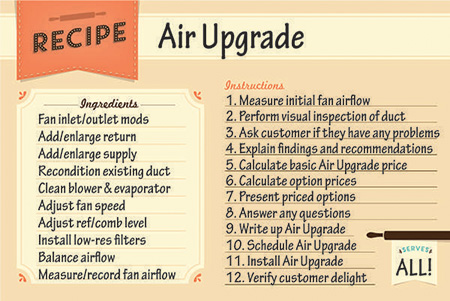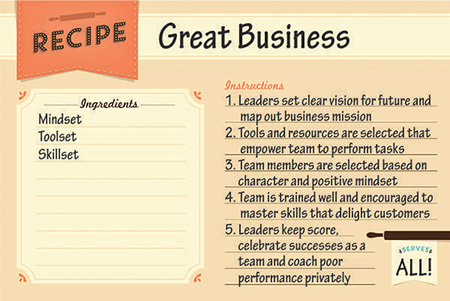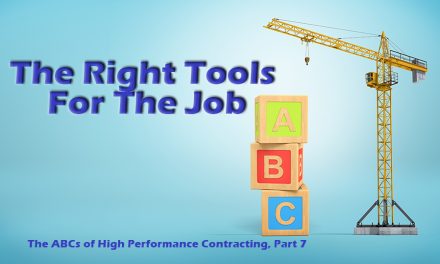In 1818, Mary Shelley published Frankenstein, her best-selling horror classic about an experiment that goes horribly wrong. Swiss student, Victor Frankenstein, uncovers the secret to bringing life to that which is lifeless. In assembling body parts to create a monster, Victor ultimately sets the stage for his own destruction and that of everything he loves.
What does that have to do with you and your business? For the sake of this article, let’s say that the “monster” is the business of which you are the “creator.” With this in mind, here are two important questions to consider:
- What kind of creator are you?
- What kind of monster are you creating?
You’re the Creator
As the business creator, it’s your job to identify the “lifeless parts” that you must assemble to create your monster. This includes selecting the right parts, pieces, equipment, vehicles, test instruments, computers, software, telephones, desks, chairs – every inanimate object ‘ your company needs to produce the quality products and services that customers deserve.
Your next job is to select and train the best people who will bring these lifeless parts to life by following clear directions to accomplish tasks required to delight customers. This involves time to really think about and document those directions ‘ the same way a master chef documents the recipe for a delicious meal.

A recipe is simply a document describing “a way of doing something that will produce a particular result.” It includes the Ingredients (items needed to complete the task) and the Instructions (detailed information telling how something should be done, operated, or assembled) to produce the final product. As the creator, it’s your responsibility to make sure your team is following the best set of recipes for consistent and profitable business success.
Your Creation can be a Blessing or a Curse
When your business is “firing on all cylinders,” the blessings are plentiful. Customers are cared for well. Employees are happy and thriving. Vendors are eager to do business with you. There’s plenty of money in the bank. Your business is steadily growing. What a blessing, right?
But, when the business is misfiring on a regular basis, the curses can be extremely painful. Customers are constantly complaining. Employee attitudes stink and turnover is commonplace. Vendors want cash on delivery and aren’t very responsive. Cash flow is dismal and your business is in decline. What a curse (way too many contractors live this way)!
The difference between blessings and curses can be found in the recipes used to run the business.

The Recipe for a Great Business
A great business requires three basic ingredients: (1) Mindset, (2) Toolset and (3) Skillset. Professional bakers know that the best cakes require the best ingredients. The same is true for business. All businesses have a mindset, a toolset and a skillset but the quality of the ingredients dictates the quality of the result.
“Set” is common to all three of these important ingredients. I decided to look up the definition of the word and was amazed at how many ways we use it in the English language.’ For the purpose of this discussion, let’s define “set” as “a number of things of the same kind that belong or are used together; mental inclination, tendency, or habit; fixed by authority or appointment; being in readiness; prepared.”
Now that we’re “all set,” let’s look at what these top-quality business ingredients look like:
|
MINDSET |
Merriam-Webster’s defines mindset as “a particular way of thinking; a person’s attitude or set of opinions about something; a mental attitude or inclination; a fixed state of mind.”
A great business is led by people who think positively about the future and share that vision with their team. They only employ people with great attitudes about lifelong learning and are interested in continuous personal improvement. The entire team is focused on doing their very best to serve and delight customers ‘ both internally and externally. They constantly think of ways to be more proactive and less reactive in their daily business lives. |
|
TOOLSET |
Tool is defined as “a handheld device that aids in accomplishing a task; something used in performing an operation or necessary in the practice of a vocation or profession; a means to an end; natural ability.”
A great business has a great set of tools that empowers their team to successfully accomplish the tasks for which they are responsible. The company’s toolset is “fixed by authority” of the leaders and equips the team to consistently put smiles on the customer’s face. |
|
SKILLSET |
According to Dictionary.com, skill is defined as “the ability, coming from one’s knowledge, practice, aptitude, etc., to do something well; competent excellence in performance; expertness; dexterity; a craft, trade, or job requiring manual dexterity or special training in which a person has competence and experience.”
A great business makes sure that every player on the team is well trained and has developed the skills needed to use the tools required to accomplish the tasks to which they are assigned. They measure the performance of each player and celebrate their success publically. When performance is not up to standards, players are coached privately and retrained to improve their skills. |
When you combine these three top-quality ingredients using the right instructions, your results will be a predictable business success.
Victor Frankenstein’s failure was rooted in the fact that he really didn’t have a plan for his ultimate outcome. He definitely succeeded in one phase of his plan: assembling dead body parts and bringing them to life. But, because he didn’t decide what to do with his new creation, it wound up going astray and wound up costing him everything he loved ‘ family, friends, reputation and even his own life.
Don’t be Victor Frankenstein. Have a plan for your business success and enjoy the blessings!













Recent Comments